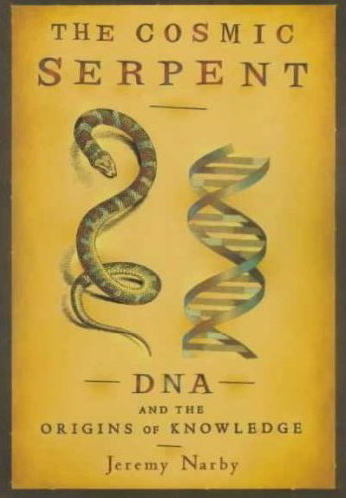Culture and Religion
NoLies Radio Interview: Jewish humour in the camps and more
- Written by Eric Walberg Эрик Вальберг/ Уолберг إيريك والبرغ
http://noliesradio.org/archives/114801
The Real Downton Abbey
- Written by Eric Walberg Эрик Вальберг/ Уолберг إيريك والبرغ
 Downton Abbey is phenomenon. A dazzling remake of Upstairs, Downstairs (1971--75), which was arguably better as a drama (well worth a second viewing), but which lacked Downton's docudrama cache and the breathtaking sets. Both series revisit the British empire at its peak, in the early 20th century, when the Union Jack covered half the globe, and the ruling elite lived a high life that can never be matched, no matter how many millions you may have. Genuine fairytale realities, heaven on earth -- at least for the elite.
Downton Abbey is phenomenon. A dazzling remake of Upstairs, Downstairs (1971--75), which was arguably better as a drama (well worth a second viewing), but which lacked Downton's docudrama cache and the breathtaking sets. Both series revisit the British empire at its peak, in the early 20th century, when the Union Jack covered half the globe, and the ruling elite lived a high life that can never be matched, no matter how many millions you may have. Genuine fairytale realities, heaven on earth -- at least for the elite. You can build replicas of manors and wear costumes all you like, but the social order where the lives of millions of servants, workers and tradesmen revolve around the whims of a tiny aristocracy, where everyone had their clearly defined role in the social order, is long gone. A journey into the world of Downton Abbey is a journey into an alternative reality.
With no electricity, no cars (barely there in 1912), no telephone, but gas lighting, railways and the new telegraph, you watch the advent of all of those inventions that make our world today, and experience how they transformed everyday life. You are touched by the spectre of revolution, both the Irish War of Independence in episode one (the driver Tom), and then by the odd socialist (not the servants) after the Russian Revolution.
One key plot device is the delicate treatment of the crucial role that Jewish banking money played a prominent role in the elite's fortunes. Lady Grantham (Cora Crawley) is revealed in passing as an American Jewess, whose money saved the Abbey from bankruptcy, but whose origins are (sort of) a family secret. The outcast, though still privileged, role of Jews in British society is implicitly highlighted by the will of the fourth Earl, the father of the Downton Abbey's Lord Grantham, Robert Crawley. He had put an "entail" on the estate, stipulating that unless Cora produced a male heir (which she didn't), the estate would pass over to the closest male relative in the family, a third cousin.
France's response to Paris attacks encourages ISIS caliphate fantasy
- Written by Eric Walberg Эрик Вальберг/ Уолберг إيريك والبرغ
 France's emotional response to the recent tragedy, devoid of reason and ignoring history, just makes matters worse.
France's emotional response to the recent tragedy, devoid of reason and ignoring history, just makes matters worse. The death toll in the November 13 attacks in Paris stands at 127. Iranian President Hassan Rouhani sent a message to his French counterpart Francois Hollande condemning the attacks. “In the name of the Iranian nation, itself a victim of the evil scourge of terrorism, I strongly condemn these inhumane crimes and condole with the bereaved French nation and government.”
In contrast, Israeli Prime Minister Binyamin Netanyahu opened his weekly Cabinet meeting by calling on world leaders to condemn terror against ... Israel. He began by addressing the killing of two Israelis, ignoring the 81 Palestinians who have died in protests this month. “The time has come for the nations of the world to condemn terrorism against us as much as they condemn terrorism anywhere else in the world.” He pledged Israeli intelligence assistance to France, adding “An attack on any of us needs to be seen as an attack on all of us.”
Translate: France's tragedy is a wake-up call for solidarity with ... Israel.
G Hancock "Supernatural: Meetings with Ancient Teachers of Mankind"
- Written by Eric Walberg Эрик Вальберг/ Уолберг إيريك والبرغ
 Graham Hancock, Supernatural: Meetings with the Ancient Teachers of Mankind, Anchor, 2005.
Graham Hancock, Supernatural: Meetings with the Ancient Teachers of Mankind, Anchor, 2005.
This work summarizes the breakthroughs since the 1980s in deciphering Paleolithic cave paintings and showing the common origins of all culture in religion. Religion began with shamanism and the mastering of 'altered states of consciousness' (asc) either through specially gifted individuals' ability to achieve asc directly or the use of hallucinogens.
-brain as receive as well as generator of consciousness. -visions/ dreams (especially man-beast (therianthrope), otherworlds) -> development of symbolic thought, awareness of spiritual world -> modern man.
-Francis Crick won Nobel Prize in 1992 for his discovery of DNA in 1953 while on LSD -went from atheist to belief that life on earth was seeded with DNA by some alien civilization. -see his Life Itself: Its Origin and Nature (1982)
-Q: is hallucination internal (physical eye, memories -> Freud, collective unconscious -> Jung, mere creativity) or external (mind as 'tuned' to channel, jini, fairies, other dimension/ reality, earth colonized by alien DNA but from where?). -hallucinogens allow temporary retuning of brain.
-Q: are benefits of shamanism from human mind or are shamans literally helped, taught, prompted and inspired by supernatural agents? 285. -high-tech virtual teachers encoded in one's own DNA (ie, internal to mind/body, but revealing the DNA encoded messages from pre-earth civilization, 'spirits' or virtual teachers broadcasting interactive lectures)?
"The Square": Documenting Egypt’s revolution
- Written by Eric Walberg Эрик Вальберг/ Уолберг إيريك والبرغ
 The Square, a documentary about Egypt’s January 2011 uprising, provides glimpses of most of the players but gives short shrift to the Muslim Brotherhood, the main player that was then targeted by the deep state headed by the military.
The Square, a documentary about Egypt’s January 2011 uprising, provides glimpses of most of the players but gives short shrift to the Muslim Brotherhood, the main player that was then targeted by the deep state headed by the military.
The Square, the Academy Award-nominated Egyptian-American documentary film by Jehane Noujaim, depicts events in Egypt from January 2011 focusing on Tahrir Square. It is neither “Egyptian” nor “American” in any meaningful sense, as the Egyptian “government” has banned it, Noujaim’s mother is American, and she was raised more in Kuwait, has lived in Boston since 1990, and as such is far from typically American in outlook.
More Articles...
Page 14 of 18





